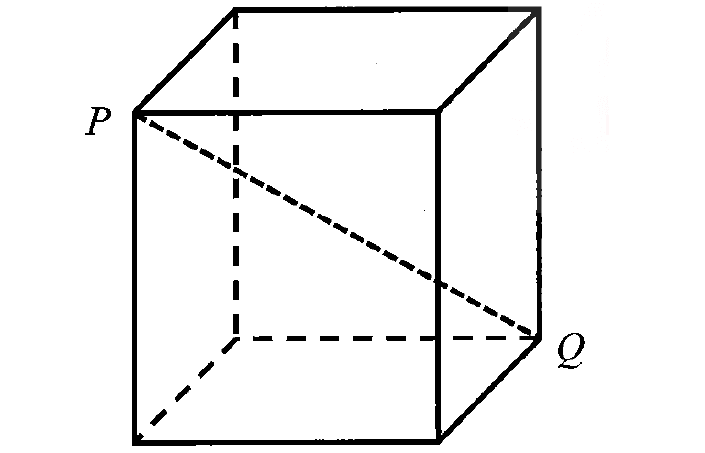SOLVING LINEAR INEQUALITIES IN ONE VARIABLE WORD PROBLEMS
In this section, you will learn how to solve word problems using linear inequalities.
To solve word problems using linear inequalities, we have to model the information given in the question as linear inequalities and solve for unknown.
Problem 1 :
Find all pairs of consecutive odd positive integers, both of which are smaller than 18, such that their sum is more than 20.
Solution :
Let x be the smaller of the two consecutive odd positive integers.
Then, the other odd integer is (x + 2).
Given : Both the integers are smaller than 18.
In solving this kind of problems, when both the smaller and larger integers are less than 18, always we have to take the larger integer to form inequality.
Then, we have
x + 2 < 18
Subtract 2 from each side.
x < 16 -----(1)
Given : Sum of the integers is more than 20.
Then, we have
x + (x + 2) > 20
x + x + 2 > 20
2x + 2 > 20
Subtract 2 from each side.
2x > 18
Divide each side by 2.
x > 9
9 < x -----(2)
Combine (1) and (2).
9 < x < 16
So, the value of x is any odd integer between 9 and 16.
The possible values of x are
11, 13, 15
When x = 11, 12, 13, the possibles values of (x + 2) are
13, 15, 17
Therefore, the required pairs of odd integers are
(11, 13), (13, 15) and (15, 17)
Problem 2 :
Find all pairs of consecutive even positive integers, both of which are larger than 8, such that their sum is less than 25.
Solution :
Let x be the smaller of the two consecutive odd positive integers.
Then, the other odd integer is (x + 2).
Given : Both the integers are larger than 8.
In solving this kind of problems, when both the smaller and larger integers are larger than 18, always we have to take the smaller integer to form inequality.
Then, we have
x > 8
8 < x -----(1)
Given : Sum of the integers is less than 25.
Then, we have
x + (x + 2) < 25
x + x + 2 < 25
2x + 2 < 25
Subtract 2 from each side.
2x < 23
Divide each side by 2.
x < 11.5 -----(2)
Combine (1) and (2).
8 < x < 11.5
So, the value of x is any even integer between 8 and 11.5.
There is only one even integer between 8 and 11.5
So, the possible value of x is
10
When x = 10, the possibles value of (x + 2) is
12
Therefore, the required pair of even integers is
(10, 12)
Problem 3 :
In the first four papers each of 100 marks, John got 95, 72, 73, 83 marks. If he wants an average of greater than or equal to 75 marks and less than 80 marks, find the range of marks he should score in the fifth paper.
Solution :
Let x be the marks scored by John in fifth paper.
Then, we have
75 ≤ [(95 + 72 + 73 + 83 + x)/5] < 80
Simplify.
75 ≤ (323 + x) / 5 < 80
Multiply each side by 5.
375 ≤ (323 + x) < 400
Subtract 323 from each side.
52 ≤ x < 77
So, John should score between 51 and 77 marks in his fifth paper.
Problem 4 :
A man wants to cut three lengths from a single piece of board of length 91 cm. The second length is to be 3 cm longer than the shortest and third length is to be twice as the shortest. What are the possible lengths for the shortest piece, if third piece is to be at least 5 cm longer than the second ?
Solution :
Let x be the length of the shortest piece
Then, the lengths of the second and third piece are
x + 3 and 2x
Given : The total length of the board is 91 cm.
Then, we have
x + (x + 3) + 2x ≤ 91
Simplify.
4x + 3 ≤ 91
Subtract 3 from each side.
4x ≤ 88
x ≤ 22 -----(1)
Given : The third piece has to be at least 5 cm longer than the second.
Then, we have
2x ≥ (x + 3) + 5
2x ≥ x + 8
Subtract x from each side.
x ≥ 8
8 ≤ x -----(2)
Combine (1) and (2).
8 ≤ x ≤ 22
So, the shortest piece must be at least 8 cm long but not more than 22 cm long.
Kindly mail your feedback to v4formath@gmail.com
We always appreciate your feedback.
©All rights reserved. onlinemath4all.com
Recent Articles
-
Digital SAT Math Problems and Solutions (Part - 152)
Apr 28, 25 11:54 AM
Digital SAT Math Problems and Solutions (Part - 152) -
Digital SAT Math Problems and Solutions (Part - 151)
Apr 26, 25 11:18 AM
Digital SAT Math Problems and Solutions (Part - 151) -
AP Calculus BC Problems with Solutions
Apr 26, 25 05:49 AM
AP Calculus BC Problems with Solutions
